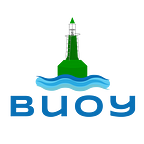I wish that the process of starting a business and getting it to profitability was structured, quick, and painless. It is none of those things! Read on to hear two messy, slow, painful lessons learned through failure from my own entrepreneurial experiences over the past 4 years.
Lesson #1 that I learned through failure: There are four questions you need to answer before you are allowed to start your business.
First, think of the problem your solution is solving.
- Do people have this problem?
- If they do, are they looking for a solution?
- If they are, do they want your solution?
- If they do, can you find them and get them to buy for less money then you will make from their purchase?
The failure that taught me this was my first startup, Black Swan Investment Group LLC. With BSIG, my co-founders and I made a product without asking any of these questions, because after months spent designing several “genius” investment portfolios and getting our day trader marketplace up and running, we were simply terrified of being wrong. Once we worked up the courage to launch, we realized that most investors were far too risk-averse for our completely unregulated platform.
With Buoy, I knew from my experience in Gary that lots of employed people had the problem of predatory lending. In early 2021, I set out to answer the rest of the three questions.
Lesson #2 that I learned from failure: You have to share your imperfect and downright bad ideas with the world to know when to pivot.
This is basically the one sentence summary of The Lean Startup by Eric Ries. But I started Buoy before I read that book, silly me! Here’s the pivot history of Buoy, my current venture:
- February 2021
Initial idea to design an alternative underwriting algorithm that would allow banks to lend to low-to-no credit customers. Some family friends that worked in retail and commercial banking explained to me all of the difficulties I would face trying to implement a new underwriting model at a regulated depository institution. NEXT.
- May 2021
I would start a non-profit community development financial institution (CDFI) consulting firm focused on creating digital front-ends and new underwriting models for CDFIs. I did the research. I built the pitch deck. I got in touch with the CDFIs. They were 100% not interested. NEXT.
- July 2021
I planned a non-profit that would help start student-run small dollar lending programs at universities nationwide, similar to the one seen at Purdue University. I had one person tell me this was a good idea. Then I had 10 people who were closer to the small-dollar lending industry tell me it was a terrible idea. NEXT.
- August 2021
I thought about raising capital and starting a non-profit CDLF with an alternative underwriting model. I was told that I would need to raise a huge amount of debt capital and jump through a long series of legal hoops to start lending in one state, with nationwide lending totally out of scope. NEXT.
- December 2021
I dreamed up a for-profit consulting service where I would help CDFIs start Employer-Sponsored Loan programs in their communities. I spoke with ~20 CDFIs around the country. No one wanted to hire me. NEXT.
- February 2022
I founded a for-profit marketing & outreach service for a small cohort of mission-driven lenders offering Employer-Sponsored Loans. So far, I’ve connected a handful of community leaders and employers to my network of Employer-Sponsored Loan lenders. It’s slow, it’s manual, and it’s the exact opposite of a get rich quick scheme.
But Buoy is finally floating, and we’ve already made a difference in one life.
Buoy Holdings is an Ithaca-based benefits consultant on a mission to end predatory lending in America. Schedule a meeting to learn more.
